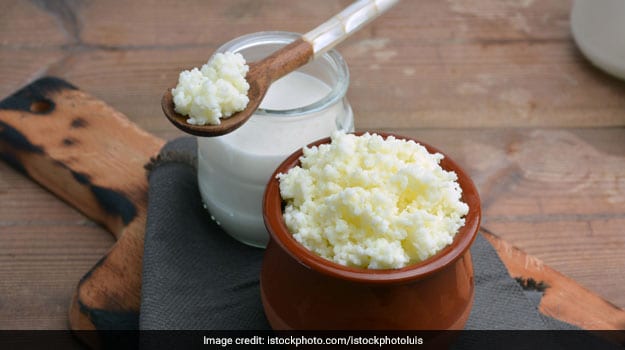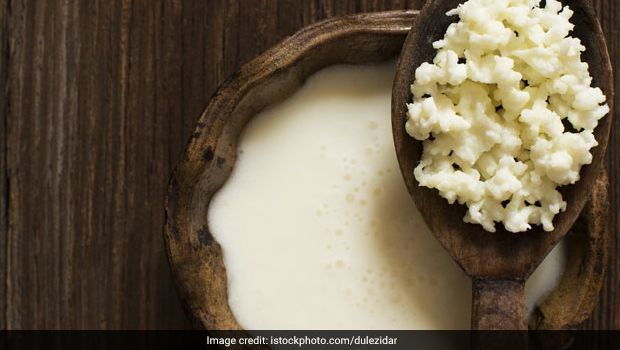"The biochemical process of fermentation in foods encourages the growth of friendly bacteria that help maintain a healthy gut," as mentioned in Dorsling Kindersley's Healing Foods.
Indian culinary space is abundant with a range of fermented food items; what are items like buttermilk, yogurt, dal and rice batters, pickles, idlis, dosas and appams, if not the product of fermentation? Light on the stomach and great for hair, skin and overall nourishment of the body, fermented foods can easily be a part of your daily diet without any fuss or added effort. In the world of miso and kombucha, it will be grossly unfair to not talk about an ingredient that deserves a spotlight in its own right - kefir.

Kefir- fermented milk
What is Kefir?
For starters, kefir is nothing but fermented milk. Some may link it to a type of yogurt drink with a distinct flavour. Kefir is a product of fermentation, of course. It is created by culturing fresh milk with kefir grains which are nothing but live colonies of yeast and bacteria. The fermented, probiotic drink comes loaded with potassium, calcium, protein and a bevy of other micronutrients.
What is it Good For?
DigestionKefir is excellent in breaking down lactose, a boon for people suffering from lactose intolerance. It is therefore great for checking digestive issues, bloating and gastric troubles.
Immunity
Kefir comes enriched with a fibre called kefiran, which helps check the inflammatory response in the body and boosts immunity. "Regular consumption may increase the activity of the body's natural killer cells and T-helper cells that help kickstart the immune response," as noted in Dorsling Kindersley's Healing Foods.
Anti-cancer
A host of studies published previously have linked kefir with slowing the growth of breast cancer cells. A recent study published in the journal Dairy Science suggests kefir to have benefits for cancer survivors.
Make it at Home
It is best advised to create kefir at home. Unpasteurized or pasteurized nonhomogenised milk would be your best bet. One tablespoon of kefir grains would suffice for close to 4 cups of milk. This can be kept in a cool, dry place for a day. Strain the milk and use existing kefir grains for the next batch. Kefir can be stored in the refrigerator for up to a week. It will continue fermenting on its own and achieve a thicker consistency over the days. The best deal about it is the fact that kefir milk can be used similar to regular milk to arrive at cheese, yogurt, spreads and other delectable food items. Its mild acidity also makes it a viable option to tenderise meat.
A chat with your medical practitioner or a certified nutritionist can offer a holistic entry into the world of kefir and other fermented foods and how best to include them in your regular diet to reap maximum health benefits.










